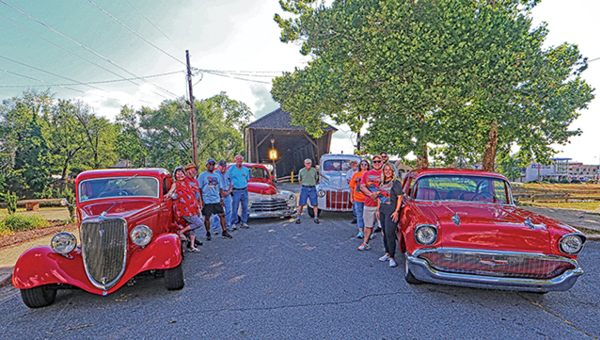There’s much more to do at the local library than read!
Published 8:28 am Monday, November 4, 2019
Elizabethton and Carter County are blessed with a topnotch library. It is not only the home of hundreds of books, periodicals, and other reading matter, but there is lots more than reading to do at the library. There are computers to do research, do a job resume, or do a research paper.
It’s a place you can do genealogy research, make new friends, and do just about anything you want to do, except make noise. The library is one institution in our community we often take for granted.
For example, coming up this month is an ACT Test Prep Workshop for students in grades 8-12 Monday at 5 p.m. Are you an adult who likes to color and connect with others, there’s a class for you Nov. 7 at noon. Materials are provided.
The library is, quite simply, a one-stop technology and knowledge shop. Computers and Wi-Fi allow patrons to access the internet to do research and search online for jobs. Libraries in communities of all sizes are key to keeping society abreast of new technologies.
The public library is a uniquely American institution and is a foundation stone of our democratic republic. Indeed, the world’s first truly modern public library — one available to all the public — was in the New Hampshire village of Peterborough, opening its doors in 1833.
It was a Scotsman, the steel magnate Andrew Carnegie, who helped open public libraries in communities across the nation. The founder of U.S. Steel, who came to this country as a penniless 12-year-old child in 1848, paid for construction of public libraries at such a rate that by 1930, 11 years after his death, more than half of the libraries in America was paid for through Carnegie’s endowment.
At the time of his death, Carnegie was one of the world’s richest persons, with a fortune worth more than $375 billion in today’s dollars. Throughout his long business career, he had come to appreciate the role institutions such as the performing arts and public libraries played in creating this country.
Today, across America, many of the Carnegie libraries are still in use, and their central place in American life is as strong as ever.
There have been those in recent years who have questioned whether taxpayers should still be paying for public libraries when you can access a world of knowledge on the internet with a click of a mouse. These same critics just can’t believe people would still want to borrow a book to read, when they can just download a digital copy online. And every year when municipalities are crafting their annual budgets, one of the first items on any list of possible cuts is the public library.
We applaud both the City and County for increasing their funding for the library the past year.
Our society is changing rapidly, and the public library remains one of the most important institutions guiding our way into the future. Andrew Carnegie’s investment is still paying dividends to this very day.





